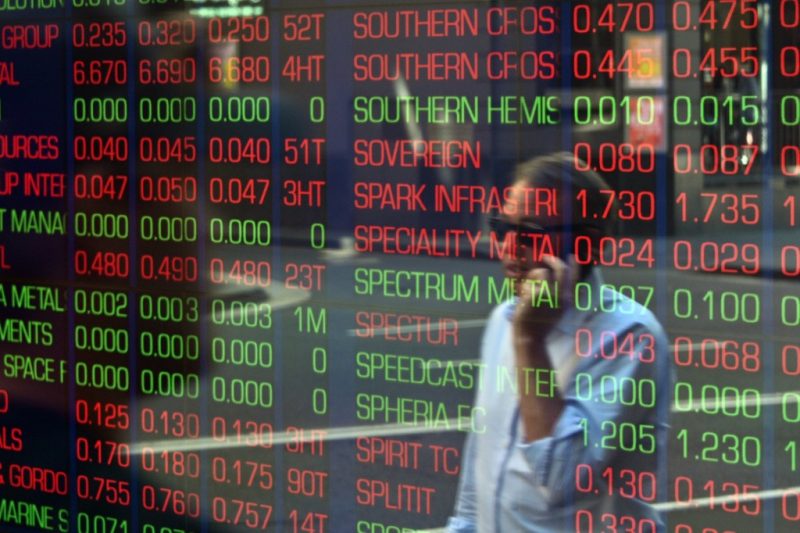Stocks fell in key markets in Asia on Tuesday amid concern over rising Covid cases causing economic disruption in mainland China and Japan.
Strict Covid curbs in Shanghai reignited worries of a wider economic disruption, while possible delisting risks of major Chinese firms from US exchanges dragged Hong Kong shares to a six-week low.
At market close, the Shanghai Composite index was down 0.97% at 3,281.47, while the blue-chip CSI300 lost 0.94% to 4,313.62.
The smaller Shenzhen index was down 1.45%, the start-up board ChiNext Composite index fell 2.34% and Shanghai’s tech-focused STAR50 index plunged 2.95%.
In Hong Kong, the benchmark Hang Seng Index dropped 1.32% to 20,844.74, the lowest close since May 27, while Chinese H-shares listed in Hong Kong down 1.77%.
“Economic activities are picking up post-lockdown from April’s trough, but we tend to believe the road to recovery will be more gradual and bumpier than the V-shaped recovery in 2020,” Edmond Huang, head of Hong Kong and China research at Credit Suisse, said.
In Hong Kong, investors grew worried after a report about possible delisting risks of Chinese and Hong Kong companies from US exchanges.
Officials from the world’s two largest economies have held calls in the past week to further negotiations aimed at keeping about 200 Chinese stocks from losing their listings on New York exchanges, and redactions in auditors’ documents are a key barrier.
Technology giant Alibaba was a major laggard, falling 5.44% to HK$107.80 at the close.
ALSO SEE: Taiwan Hints US-Like Relations with EU May Spur Chip Plants
Nikkei Down 1.8%
Japanese shares also fell, as rising Covid cases raised worries of a recession and sparked a morning selloff. The Nikkei share average closed down 1.77% at 26,336.66, after losing as much as 1.99% earlier in the session. The broader Topix index lost 1.64%.
Stocks had risen on Monday, outperforming the rest of the region, as the Japanese government’s ruling coalition secured a strong result in the weekend’s upper house election.
But on Tuesday the Nikkei was 0.68% lower than Friday’s close, when markets were rocked by the shooting of former Prime Minister Shinzo Abe.
A domestic securities broker said the market was overbought on Monday despite the absence of any positive external factors.
“The increased spread of Covid-19 has strengthened fears of a global recession,” said a market participant at a domestic securities firm. “Given this situation, Japanese stocks, which are largely economically sensitive, are inevitably going to weaken.”
Japan reported 54,993 cases on Monday, according to official government data, up from 16,791 a week earlier.
Of the Nikkei’s 225 components, 206 fell, three were flat, and only 16 gained.
Australian Shares Flat, Indian Stocks Lower
Australian shares were muted, meanwhile, after losses in miners offset strength in bank stocks, as investors awaited US economic data this week for clues on the Federal Reserve’s stance on monetary policy.
The S&P/ASX 200 closed 0.1% higher at 6,606.30 points, after the benchmark fell 1.1% on Monday.
“The Australian market is being influenced by macroeconomic data right now, so I think the market is going to be treading water until we get some more news this week,” said Brad Smoling, managing director at Smoling Stockbroking.
Indian shares also ended lower in the run-up to domestic inflation data that was expected to reinforce bets of further policy tightening by the central bank, while the rupee plumbed a fresh low amid the dollar surge.
The NSE Nifty 50 index ended 0.97% lower at 16,058.30, while the S&P BSE Sensex fell 0.94% to 53,886.61.
India’s retail inflation reading due later in the day is expected to hold above the top end of the central bank’s tolerance band, according to a Reuters poll, cementing the case for a rate hike at the next policy meeting in August.
Focus was also on the US consumer price index on Wednesday as investors brace for another super-sized interest rate hike by the Federal Reserve.
The Indian rupee, meanwhile, fell to a record low amid continued foreign portfolio outflows from domestic stock markets and weakness in Asian currencies on fears of a global recession.
- Reuters with additional editing by Jim Pollard
ALSO on AF:
BYD Shares Plunge Amid Speculation of Buffett Stake Sale
US, IEA Ask Asia to Cut Reliance on China, Russia For Energy
Commodity Prices Collapse Echoes 2008 Crisis, SocGen Says
























